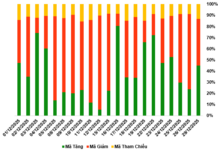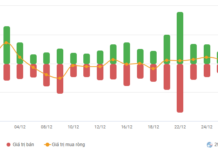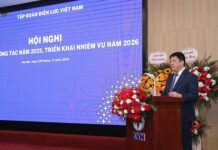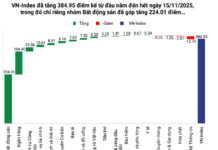Timelines for Eligibility Confirmation
Regarding the submission of applications for social housing at the above-mentioned project, citizens are curious if the paperwork confirming their housing status at the district/ward-level Land Office in the city where the project is located will still be valid by the fourth quarter.
In response to this query, the Housing and Real Estate Market Management Bureau (under the Ministry of Construction) stated that Clause 1, Article 29 of Decree No. 100/2024/NĐ-CP, detailing a number of articles of the Housing Law on social housing development and management, has specified the housing conditions for eligibility to purchase social housing.
Consequently, individuals are considered to lack housing ownership when neither they nor their spouses (if any) are named in the land use right and ownership of assets attached to the land (“red book”) in the locality where the social housing project is located at the time of submitting the registration for purchase or rent-to-buy.
Therefore, the current housing laws only stipulate the confirmation of housing conditions for those registering to purchase or rent-to-buy social housing at the time of application submission, without specifying a validity period for the confirmation of housing conditions.
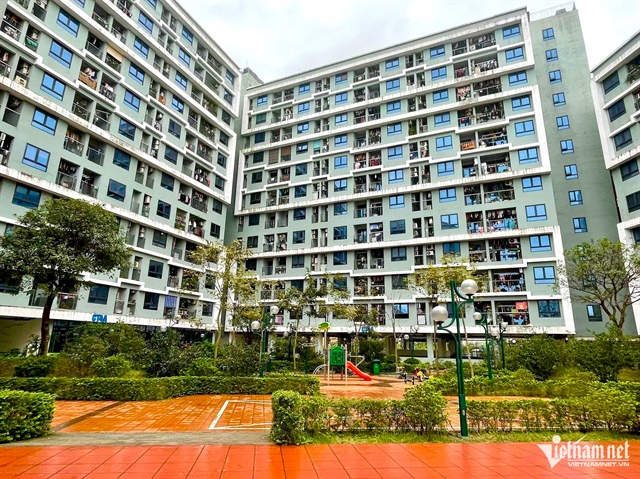 A social housing project in Hanoi. Photo: Hong Khanh |
How Can Freelancers Prove Low Income?
In another case, a freelance worker without an employment contract, single, with an income of less than 15 million VND/month, and temporarily residing in Hai Ba Trung Ward (Hanoi) is in the process of applying to purchase social housing as a low-income earner in an urban area. However, the application requires proof, and as a freelancer, they have no agency to provide confirmation.
The citizen in question asks, “Who, where, and according to which form should I get confirmation to prove that I am a low-income earner in an urban area?”
For this scenario, the Housing and Real Estate Market Management Bureau cited the regulations stipulated in Point c, Clause 1, Article 38 of Decree No. 100/2024/NĐ-CP.
It clearly states: “In the case of not having an employment contract, the individual must have confirmation of their status as a low-income earner by the People’s Committee at the commune level, following the model guided by the Minister of Construction.”
According to Point c, Clause 1, Article 6 of Circular No. 05/2024/TT-BXD, detailing a number of articles of the Housing Law, the confirmation model for low-income earners in urban areas without an employment contract shall be applied following Model No. 01 in Appendix I, issued together with this Circular, and confirmed by the People’s Committee at the commune level.
Housing Condition Confirmation
Regarding the confirmation of housing conditions for the purchase of social housing from July 1st onwards, many are concerned about whether it is mandatory to go to the Land Registration Office in the communes with social housing projects to get confirmation, as was previously required.
The Housing and Real Estate Market Management Bureau clarified that Clause 1, Article 29 of Decree No. 100/2024/NĐ-CP stipulates the housing conditions for eligibility to receive social housing support policies.
Specifically, individuals are considered to lack housing ownership when neither they nor their spouses (if any) are named in the “red book” in the province or central city where the social housing project is located at the time of submitting the registration for purchasing or rent-to-buy social housing.
According to Clause 2, Article 14 of Decree No. 140/2025/NĐ-CP, regulating the division of authority of the two levels of local government in the field of state management of the Ministry of Construction, the responsibility for confirming the eligibility of individuals as specified in Clause 1, Article 29 of Decree No. 100/2024/NĐ-CP rests with the Land Registration Office/Branch of the Land Registration Office at the commune level or inter-commune, ward area in the province or central city where the social housing project is located.
The model of paperwork confirming housing conditions for eligibility to purchase social housing in the case of lacking housing ownership is specifically regulated in Article 7 of Circular No. 05/2024/TT-BXD.
Hong Khanh
– 05:45 13/08/2025
The Inspector General Exposes Dabaco’s Housing Development Violations in Bac Ninh
The inspection conclusion revealed numerous violations regarding the Dabaco Lac Ve residential project (Bac Ninh province) by the Dabaco Group. Notably, the developer had transferred 104 out of 110 land lots within the project without fulfilling their financial obligations related to land use.
“Housing for All: Government’s Social Housing Policy Offers Enhanced Benefits for Developers and Homebuyers”
“Deputy Minister of Construction, Nguyen Van Sinh, emphasized the improved policies regarding investor incentives. He highlighted the attractive and clear advantages, including exemption from land use fees and land price determination procedures for social housing project investors. These improvements streamline the process by reducing the time by 6-12 months. In addition, the conditions for buyers of social housing have been simplified.”
Latest Social Housing Acquisition Conditions 2024
Social housing is a type of housing that is typically offered at a lower price than other types of housing and is implemented as a government policy for specific target groups who are eligible for housing assistance.


